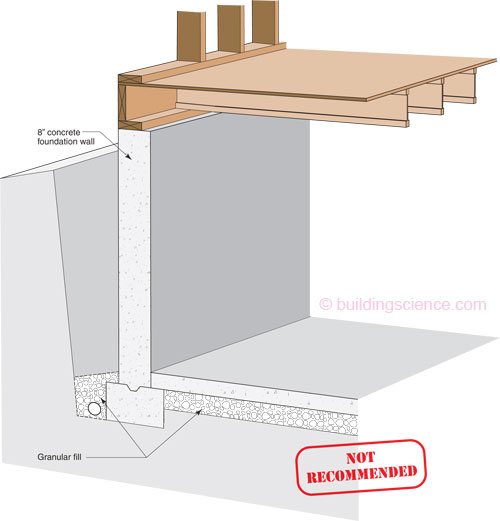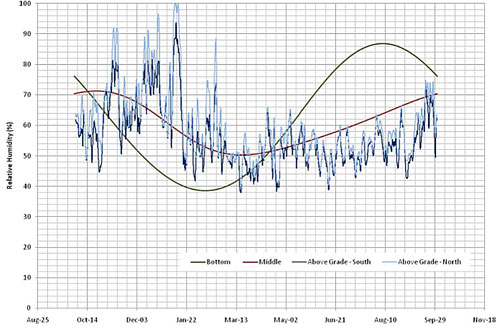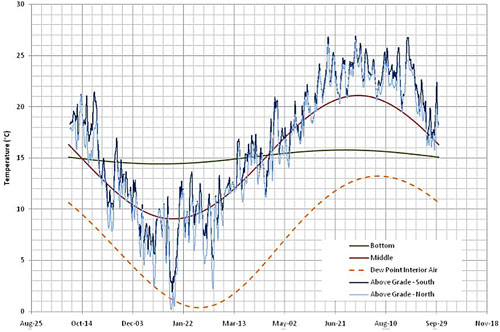This summarizes an uninsulated basement even though the code requirements in DOE climate zones 4 and higher do not allow an uninsulated basement in new construction where the basement is conditioned. The uninsulated basement was included as a baseline for comparison purposes only.
Foundation wall
- Free draining backfill
- Uninsulated concrete foundation wall
Foundation slab
- Uninsulated concrete foundation slab
- 6 mil polyethylene vapor barrier under slab
- 4” stone pad (no fines)
- Undisturbed/ native soil
Thermal Control
There is no thermal control in the foundation walls or slab. This results in high energy losses for most of the year. Significant whole house energy savings can be experienced if the basement is insulated but care should be taken to design the thermal control appropriately to the construction type to decrease the risk of moisture related issues following an energy retrofit. Predicted annual heating energy loss based on the selected simulation criteria is 57 MBtus.
Moisture Control
Since there is no insulation, there is likely no moisture control in the basement. Water vapor from the exterior is a constant moisture source, and capillary wicking through the footing and/or foundation wall may also be a significant moisture source increasing the risk of moisture related issues.
WUFI analysis of the uninsulated basement in the hygrothermal analysis section showed no significant moisture related issues (Figure 2 and Figure 3), if the relative humidity is controlled with a dehumidifier, although the basement will likely still smell damp and musty.
Figure 2: Predicted RH at the interior surface of the concrete foundation wall
Figure 3: Condensation potential for interior air on the surface of the concrete foundation wall
Constructability and Cost
There is no construction cost to leaving the basement uninsulated, but there are significantly higher energy costs.
Other Considerations
It is not recommended to leave the basement uninsulated from an energy, comfort, and health perspective. There are many different retrofit strategies that could be used, some of which are included in this analysis.
Reference
Mitalas, G.P., Calculation of Basement Heat Loss, National Research Council Canada.



